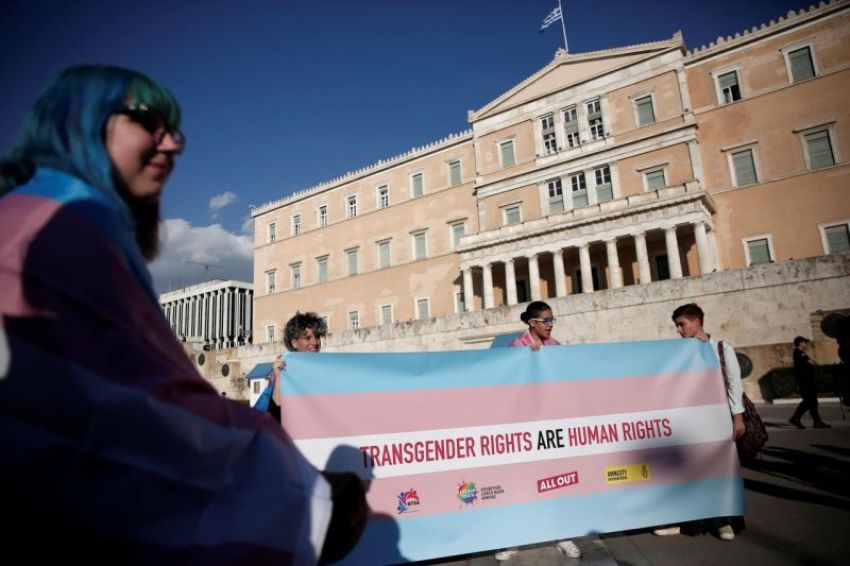Greece Debates Bill That Allows People to Change Gender Identity Without Medical Diagnosis

Greece began debating on Monday a bill allowing people to change their gender identity without medical treatment, a move that was welcomed by human rights groups but exposed political divisions and church opposition.
Greece currently requires persons who wish to have their desired gender legally recognized to be diagnosed with "gender identity disorder" and have their reproductive organs removed. This practice has been widely condemned as a violation of human rights though is common in many European countries.
The bill, tabled by the leftist Syriza party and to be put to a vote on Tuesday, says that changing legal gender is a matter of personal choice and should not be contingent on medical tests, therapies or surgeries that are all optional.
It has been condemned as "immoral" by Greece's influential Orthodox Church and as a "monstrosity" by far-right wing politicians.
The draft legislation says persons have the right to change legal gender twice, and applicants must not be married. A court will decide on their application.
A group of supporters rallied outside parliament holding a banner reading: "Transgender rights are human rights."
"I can't wait! The moment the bill passes, I'm changing my identity," said Raffaela, 40, adding that she has lived in waiting for 27 years. "The ironic stares, the mocking when people see that my identity doesn't correspond to my looks, will finally end," she told Reuters, covered in a rainbow flag.
An article setting the minimum age for the change to 15 years has bared cracks in Prime Minister Alexis Tsipras coalition. His ally, the right-wing Independent Greeks, said it would vote against it unless the age was amended to 17 years.
Campaigners say the bill is a step in the right direction but falls short of fully recognizing the rights of transgender people. Denmark was the first European country to allow legal gender changes without any medical intervention in 2014.
The government has 153 deputies in the 300-seat parliament.
The bill is expected to be approved in principle by ruling lawmakers and center-left parties. The main conservative opposition, New Democracy, tabled its own proposals.
"To have access to the labor market, to travel and deal with daily life under a name that they want, and which corresponds to how they feel, should not be negotiable," said ruling Syriza lawmaker Anneta Kavadia.
The Holy Synod, the ruling body of the Greek Orthodox Church, thinks differently. The proposal, it said, was an "affront to society", and a threat to "the sanctity of family."



























